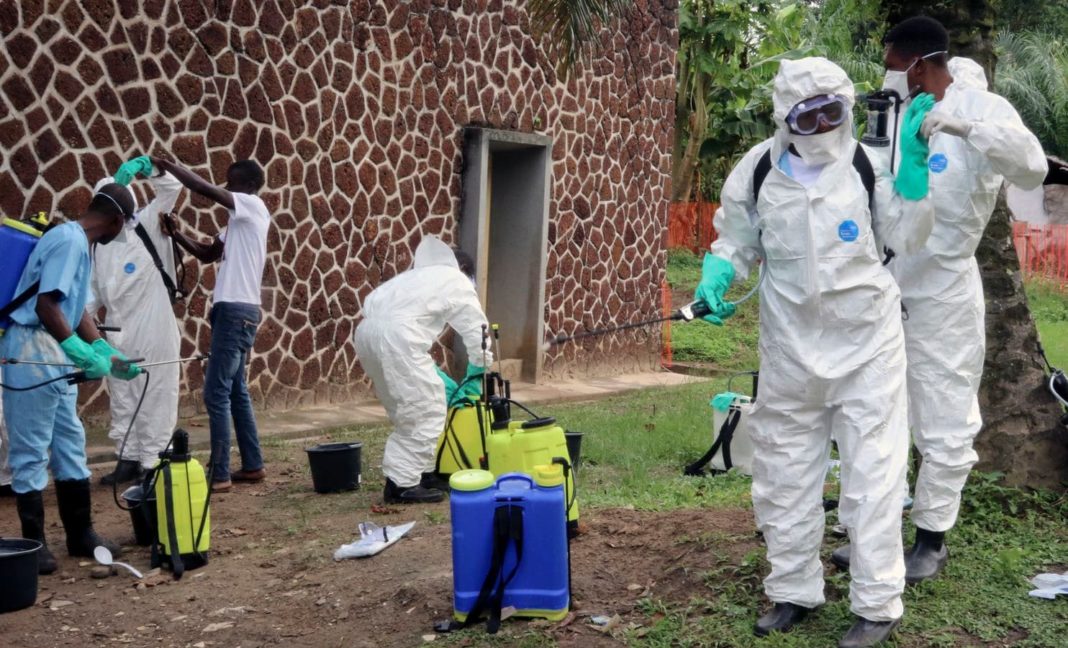The meeting of the Emergency Committee convened on Friday by the WHO Director-General Dr Tedros Adhanom Ghebreyesu, under the International Health Regulations (IHR) (2005) regarding Ebola virus disease in the Democratic Republic of the Congo (DRC), has said the spread of the disease into neighbouring Uganda where one person has so far died of the epidemic was not unexpected.
“The cluster of cases in Uganda is not unexpected; the rapid response and initial containment is a testament to the importance of preparedness in neighbouring countries. The Committee commends the communication and collaboration between DRC and Uganda,” WHO said in the press release yesterday.
It said the exportation of cases into Uganda, “is a reminder that, as long as this outbreak continues in DRC, there is a risk of spread to neighbouring countries, although the risk of spread to countries outside the region remains low.”
However the WHO committee commended the ‘heroic’ work of all responders, who continue to work under extremely challenging and stressful conditions.
Differing views were expressed, as the Committee acknowledged that recent cases in Uganda constitute international spread of disease.
One of the view of the Committee was that the outbreak is a health emergency in DRC and the region but does not meet all the three criteria for a Public Health Emergency of International Concern (PHEIC) under the IHR. While the outbreak is an extraordinary event, with risk of international spread, the ongoing response would not be enhanced by formal Temporary Recommendations under the IHR (2005).
As regards DRC, the WHO committee expressed its deep concern about the ongoing outbreak, which, despite some positive epidemiological trends, especially in the epicentres of Butembo and Katwa, shows that the extension and/or reinfection of disease in other areas like Mabalako, presents, once again, challenges around community acceptance and security. In addition, the response continues to be hampered by a lack of adequate funding and strained human resources.
The Committee provided the following public health advice, which it strongly urges countries and responding partners to heed:
- At-risk countries should improve their preparedness for detecting and managing exported cases, as Uganda has done.
- Cross-border screening in DRC should continue and its quality improved and sustained.
- Continue to map population movements and sociological patterns that can predict risk of disease spread.
- All priority countries should put in place approvals for investigational medicines and vaccines as an immediate priority for preparedness.
- Optimal vaccine strategies that have maximum impact on curtailing the outbreak, as recommended by WHO’s Strategic Advisory Group of Experts (SAGE), should be implemented rapidly.
- The Committee is deeply disappointed that WHO and the affected countries have not received the funding and resources needed for this outbreak. The international community must step up funding and support strengthening of preparedness and response in DRC and neighbouring countries.
- Continue to strengthen community awareness, engagement, and participation. There has been a great deal of progress in community engagement activities. However, in border communities, where mobility is especially likely, community engagement needs to be more sharply targeted to identify the populations most at risk.
- The implementation by the UN and partners of more coordinated measures to reduce security threats, mitigate security risks, and create an enabling environment for public health operations is welcomed and encouraged by the Committee as an essential platform for accelerating disease-control efforts.
- The Committee strongly emphasizes its previous advice against the application of any international travel or trade restrictions.
The Committee does not consider entry screening at airports or other ports of entry to be necessary.







